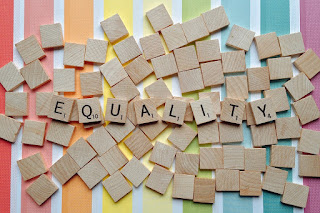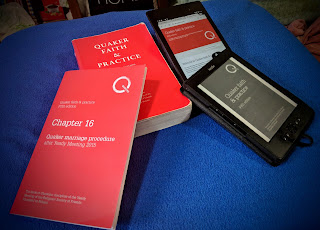There are many ways of belonging to the Quaker
family. There are those who are part of our community without
identifying with our faith, fellow-travellers who participate in
some, even all of our activities but do not consider themselves
Quakers. There are those of fervent religious belief in the spirit of
the early Friends. There are those who call themselves Quakers but
deny the religious nature of the experience, or who recognise it as
religious but are still patiently waiting for a direct experience of
the Divine that they recognise. There is, of course, the division
between member and attender, and other terms we throw around –
newcomer and enquirer being quite popular ones.
We don't seem to have a coherent view, however, of
these different dimensions of belonging, of being part of the Quaker
community, of being a Quaker. In this post, I will be exploring some
elements of this “belonging space”, to borrow mathematical
terminology.








